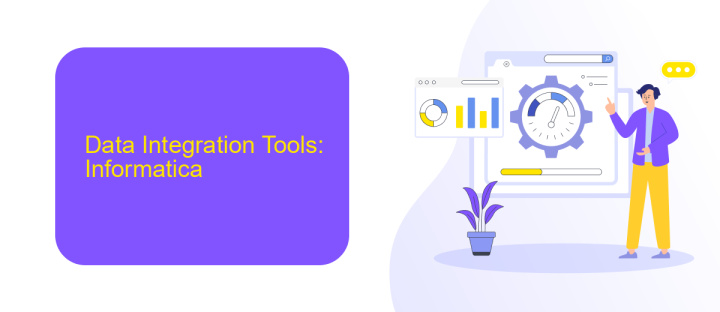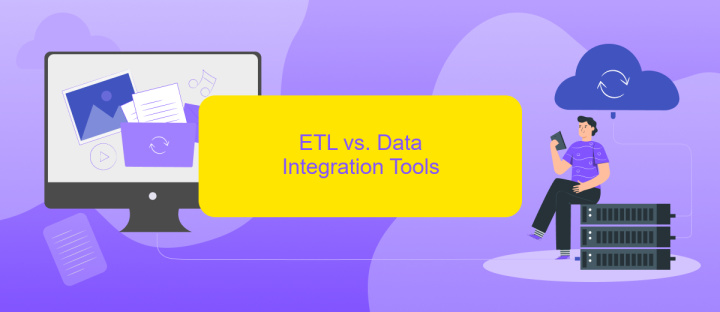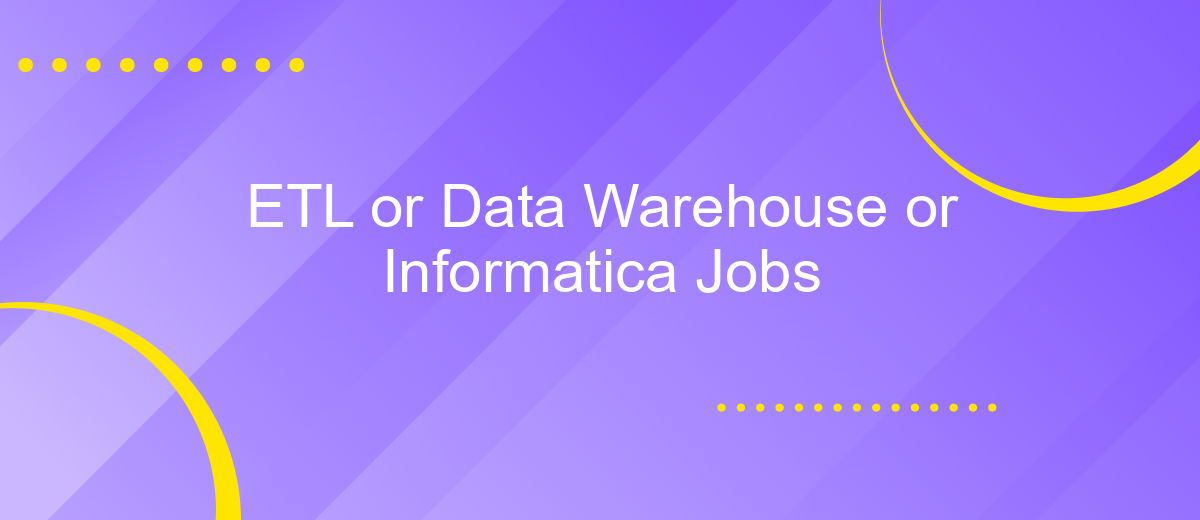ETL or Data Warehouse or Informatica Jobs
In today's data-driven world, the demand for professionals skilled in ETL (Extract, Transform, Load), Data Warehousing, and Informatica is higher than ever. These roles are crucial for organizations looking to harness their data for strategic decision-making. This article explores the essential skills, career opportunities, and industry trends for those aspiring to excel in these in-demand fields.
ETL vs. Data Warehouse
ETL (Extract, Transform, Load) and Data Warehouses are fundamental components in the data management ecosystem, but they serve distinct purposes. ETL is a process used to extract data from various sources, transform it into a suitable format, and load it into a data storage system. On the other hand, a Data Warehouse is a centralized repository designed to store integrated data from multiple sources, optimized for query and analysis.
- ETL: Focuses on data extraction, transformation, and loading.
- Data Warehouse: Centralized storage for integrated data, optimized for analysis.
- Integration: Tools like ApiX-Drive can streamline ETL processes by automating data integration from various sources.
While ETL processes prepare and move the data, Data Warehouses provide a structured environment where this data can be queried and analyzed efficiently. Both are essential for effective data management, with ETL feeding clean, transformed data into the Data Warehouse, enabling better decision-making and insights.
Data Integration Tools: Informatica

Informatica is a leading data integration tool that offers robust solutions for data warehousing, data migration, and data synchronization. Its user-friendly interface and powerful capabilities make it an ideal choice for organizations looking to streamline their data processes. Informatica supports a wide range of data sources and targets, ensuring seamless data flow across various platforms. With its advanced transformation features, users can efficiently cleanse, transform, and load data, ensuring high-quality and accurate information for business intelligence and analytics.
One of the key advantages of using Informatica is its ability to handle complex data integration scenarios with ease. It provides a comprehensive suite of tools for data mapping, workflow management, and real-time data processing. Additionally, Informatica's integration with services like ApiX-Drive enhances its functionality by enabling automated data transfers between different applications and systems. This integration simplifies the process of setting up and managing data workflows, reducing the time and effort required for manual data handling. Overall, Informatica stands out as a versatile and reliable solution for all data integration needs.
ETL vs. Data Integration Tools

ETL (Extract, Transform, Load) and Data Integration Tools are essential components in the data management ecosystem, but they serve different purposes. ETL focuses on extracting data from various sources, transforming it into a suitable format, and loading it into a data warehouse for analysis and reporting. Data Integration Tools, on the other hand, are designed to integrate data from disparate systems in real-time, providing a unified view of the data across the organization.
- ETL Tools: These tools are primarily used for batch processing and are ideal for large volumes of data. They are best suited for structured data and are commonly used in data warehousing environments.
- Data Integration Tools: These tools are designed for real-time data integration and are more flexible in handling both structured and unstructured data. They are often used for integrating data across various applications and services, such as CRM, ERP, and marketing platforms.
One example of a Data Integration Tool is ApiX-Drive, which helps automate the process of integrating various applications and services without the need for coding. This tool is particularly useful for businesses looking to streamline their workflows and ensure data consistency across different platforms. While ETL tools are crucial for data warehousing, Data Integration Tools like ApiX-Drive offer more versatility for real-time data management needs.
Data Management Considerations

Effective data management is crucial for the success of any ETL process, data warehouse, or Informatica job. It ensures that data is accurate, consistent, and accessible, enabling organizations to make informed decisions. Proper data management practices help in mitigating risks associated with data quality and security.
When managing data, it's essential to consider integration capabilities, especially when dealing with multiple data sources. Tools like ApiX-Drive can streamline the integration process, making it easier to connect disparate data systems. This service offers automated data transfers, reducing manual efforts and minimizing errors.
- Data Quality: Ensure data is clean, accurate, and up-to-date.
- Data Security: Implement robust security measures to protect sensitive information.
- Data Integration: Utilize tools like ApiX-Drive for seamless data integration.
- Data Governance: Establish clear policies and procedures for data management.
By considering these factors, organizations can enhance their data management strategies, leading to more efficient ETL processes and better overall data quality. Leveraging modern integration tools and adhering to best practices will ensure that data remains a valuable asset.
- Automate the work of an online store or landing
- Empower through integration
- Don't spend money on programmers and integrators
- Save time by automating routine tasks
Conclusion
In conclusion, the evolving landscape of ETL processes, data warehousing, and Informatica jobs underscores the critical need for robust data management solutions. As organizations increasingly rely on data-driven decision-making, the demand for skilled professionals in these areas continues to grow. Effective ETL processes ensure that data is accurately extracted, transformed, and loaded, providing a solid foundation for comprehensive data analysis and reporting.
Moreover, leveraging advanced tools and services like ApiX-Drive can significantly streamline integration tasks, enhancing the efficiency of data workflows. ApiX-Drive's user-friendly interface and powerful automation capabilities make it an invaluable asset for businesses looking to optimize their data integration processes. By embracing these technologies, organizations can not only improve their operational efficiency but also gain deeper insights from their data, driving better business outcomes.
FAQ
What is ETL in the context of Data Warehousing?
What are the key components of a Data Warehouse?
What skills are essential for a job in ETL or Data Warehousing?
How can automation be implemented in ETL processes?
What is Informatica and how is it used in Data Warehousing?
Routine tasks take a lot of time from employees? Do they burn out, do not have enough working day for the main duties and important things? Do you understand that the only way out of this situation in modern realities is automation? Try Apix-Drive for free and make sure that the online connector in 5 minutes of setting up integration will remove a significant part of the routine from your life and free up time for you and your employees.


